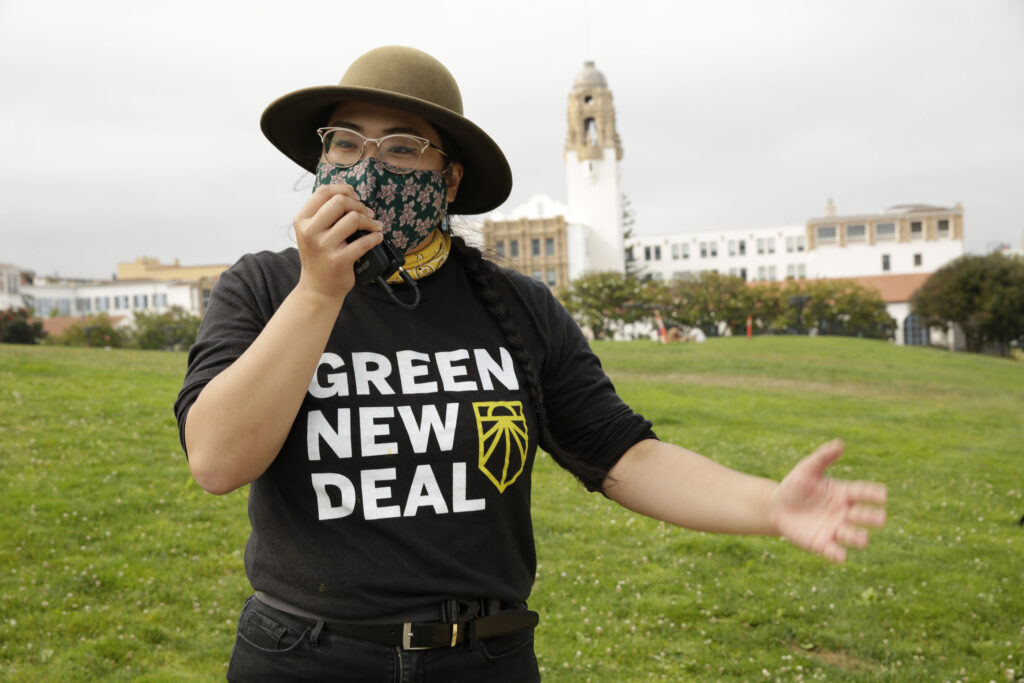BY KANIELA ING, National Director, Green New Deal Network
In the recent 2024 primary elections, our progressive movement faced a stinging rebuke. Representatives Cori Bush and Jamaal Bowman, symbols of transformative politics and champions of the underrepresented, lost their bids for reelection. These defeats, fueled by massive outside spending from corporations and dark-money groups like AIPAC, represent more than personal losses; they signal a broader challenge from corporate and far-right political forces aimed at suppressing voices of justice on both national and global scales.
These losses underscore a critical reality: electoral politics, while essential, are merely a part of the broader struggle for societal change. The progressive movement cannot solely rely on the electoral system to maintain its energy and vision. The focus must expand beyond winning seats to shifting power structures, cultural narratives, and the political common sense within the communities from which our leaders emerge.
Groups like Justice Democrats, Democratic Socialists of America, the Working Families Party, and the Progressive Change Campaign Committee have done commendable work elevating progressive candidates. However, to counteract the natural ebb and flow of movement-based politics, we must broaden our approach.
The locus of power extends beyond legislative halls. It thrives in less visible realms like newsrooms, establishment donor circles, and industry gatherings. By challenging power in all its forms, shifting the political center, and recalibrating mainstream perceptions, we ensure our champions resonate broadly and not as fringe elements.
Activists and organizers often place immense pressure on progressive elected officials to champion every cause perfectly. Yet, these officials often rise locally, through coalitions that include groups not fully aligned with our progressive ideals. We must work to make supporting our causes not only the moral choice but also the politically advantageous one. The concept of “movement governance,” where elected officials and the movements that elect them engage in mutual accountability, is crucial. This ongoing relationship ensures that officials feel supported by the movement as strongly as they are responsive to its demands. Our movement should serve both as their home and their flank, and show up regularly, not just every two or four years.
Progressive champions like Bowman and Bush face daily tensions balancing national causes with local obligations. They must maintain positive relationships with legislative leaders in Congress to deliver necessary resources like schools and hospitals to their districts. We must offer them grace in these endeavors or find ways to deliver on our own through direct community outreach, political education, mutual aid, or organizing to find alternative funding sources.
Addressing everyday concerns—potholes, trash collection, food affordability, and quality education—earns the trust and engagement of those we aim to represent. These interactions are stepping stones for engaging constituents in broader legislative priorities. To truly green our side of the field, we must engage more deeply than ever through persistent advocacy, education, and visible action in public discourse at the local level – not just on twitter or national spaces. This effort will transform our priorities into political imperatives for our representatives.
As we reflect on these electoral defeats, let them not dampen our spirit but fuel our resolve to forge a more inclusive, responsive, and equitable political landscape. The mainstream progressive movement must evolve to intertwine electoral success with continuous, on-the-ground organizing. By doing so, we cultivate a political environment where figures like Cori Bush and Jamaal Bowman are not outliers but leading representatives of a shared, progressive agenda that uplifts the masses. This approach ensures that championing our issues gains political capital rather than sacrificing it.
